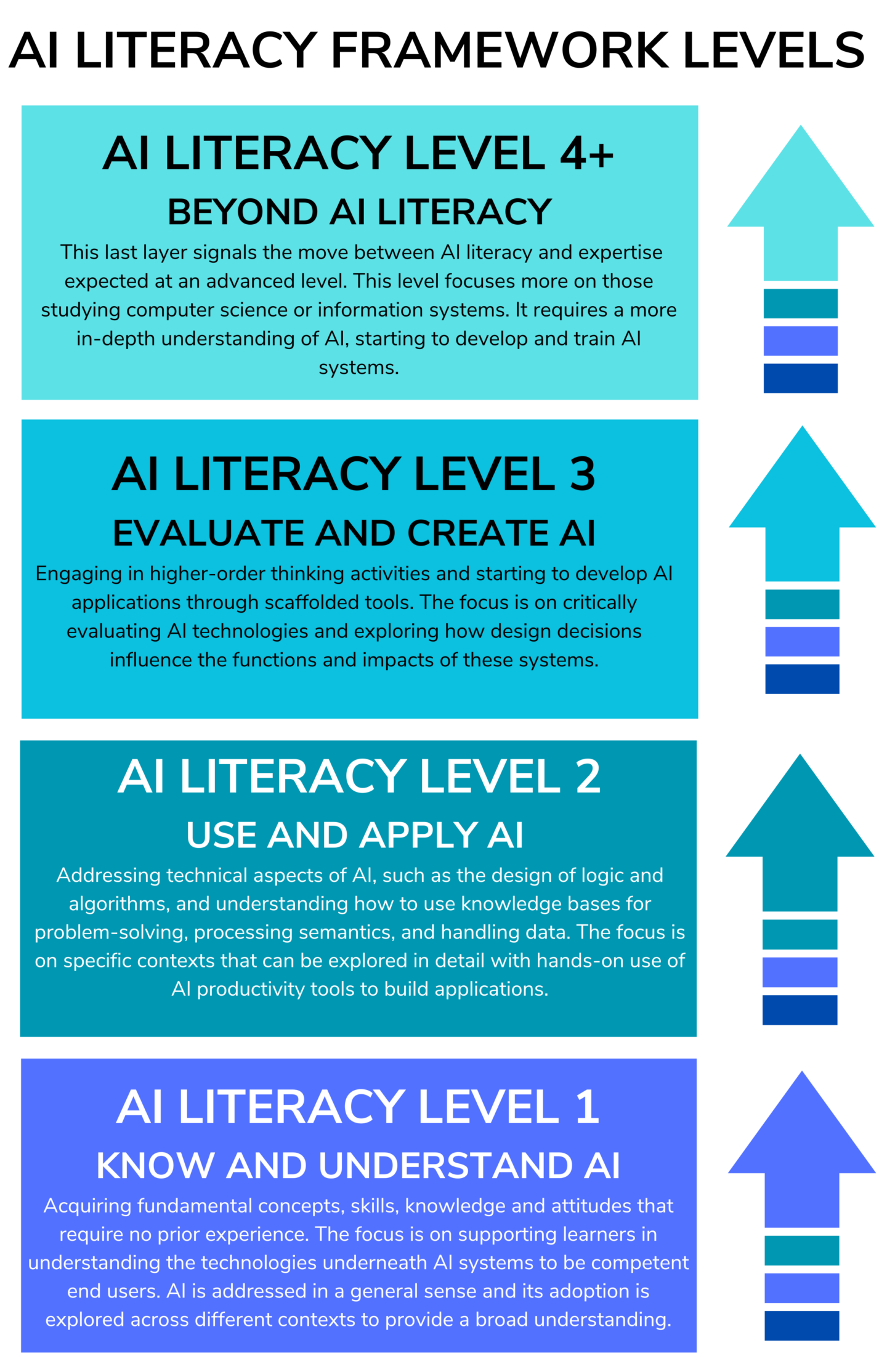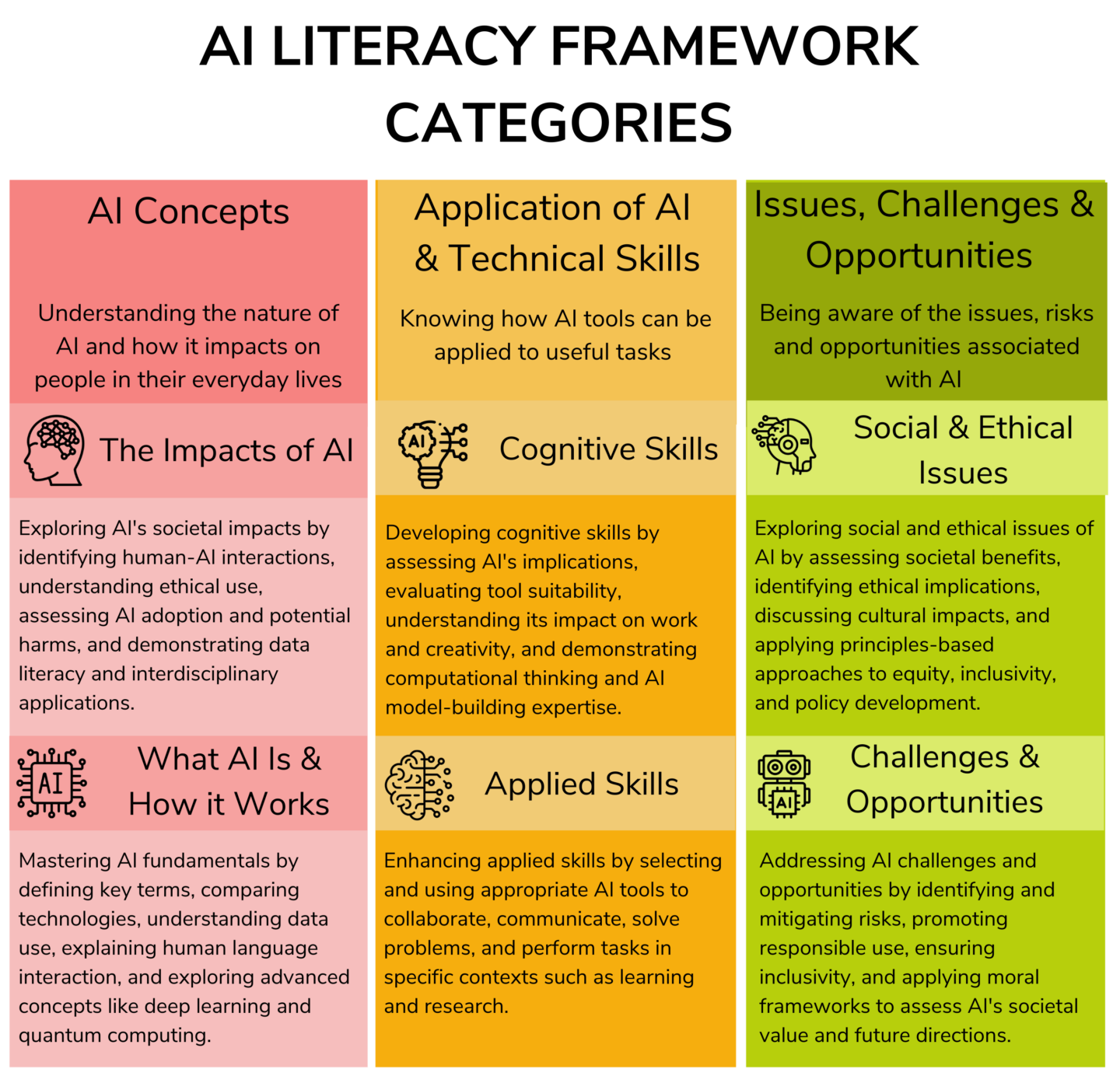AI Literacy Research Project
The concept of Artificial Intelligence (AI) literacy has become increasingly prominent in recent years. For example, The World Economic Forum in their 2022 report Without universal AI literacy, AI will fail us have promoted the need to foster universal AI literacy and assert that each of us (students, educators, non-profits, governments, parents, and businesses) needs to become literate about AI, to know when it is being used, and be able to evaluate its benefits and limitations in our lives.
As part of this effort, a research project has been set up by academics from three New Zealand higher education institutions – the University of Canterbury, academyEX, and Auckland University of Technology. The project aims to develop an AI literacy curriculum framework that will address all levels of education.
Project Phase 1 – Delphi Study
The first phase of the project has been to undertake a Delphi study of national and international experts to decide what should be the key elements of AI literacy at each of four levels of a capability model. The first three levels are intended to be the core AI literacy framework, with level 4+ being steps beyond literacy into specialist expertise.
The four levels used were:

Panel members were chosen from a range of fields and included professionals working in AI, academics, educators, and cultural experts.
Publication
Early results from this study, based on the first round of data gathering and focusing on level 1, have already been published at the 2023 ASCILITE conference:
MacCallum, K., Parsons, D., & Mohaghegh, M. (2023, December). Identifying the Components of Foundational Artificial Intelligence (AI) Literacy – Early Results from a Delphi Study. In proceedings ASCILITE 2023. December 3 – 6, 2023, Christchurch, New Zealand. https://publications.ascilite.org/index.php/APUB/article/view/672
The study is now in its final phase with the research team sharing the outcomes of the final round of the Delphi Study for additional feedback. Further publications will follow that describe the full framework and compare it to other related work being undertaken elsewhere.
Draft Content
The output from the final cycle of the Delphi Study has now been compiled. Here is a brief initial summary of the six categories of AI literacy, across three knowledge areas, that have been derived from the data, with a brief summary of some indicative content in each.
Please note this is still a working draft and may be subject to change, since we are open to further feedback from the community.

Complete draft framework for feedback
You can find the complete draft framework, with details of each level, in the AI Literacy Framework document.
Please take a look and then give your feedback using this form.
Next Phase
Once the full framework has been finalised, taking further feedback into account, we will be working with educators to explore how it can be applied in practice contexts at each of the different levels.
Related Work
Members of the team are also involved in administering a series of surveys designed to discover the current state of AI literacy in schools and universities in New Zealand to help inform our implementation of the framework. An initial study of AI in education based on a survey of New Zealand teachers can be found in this report